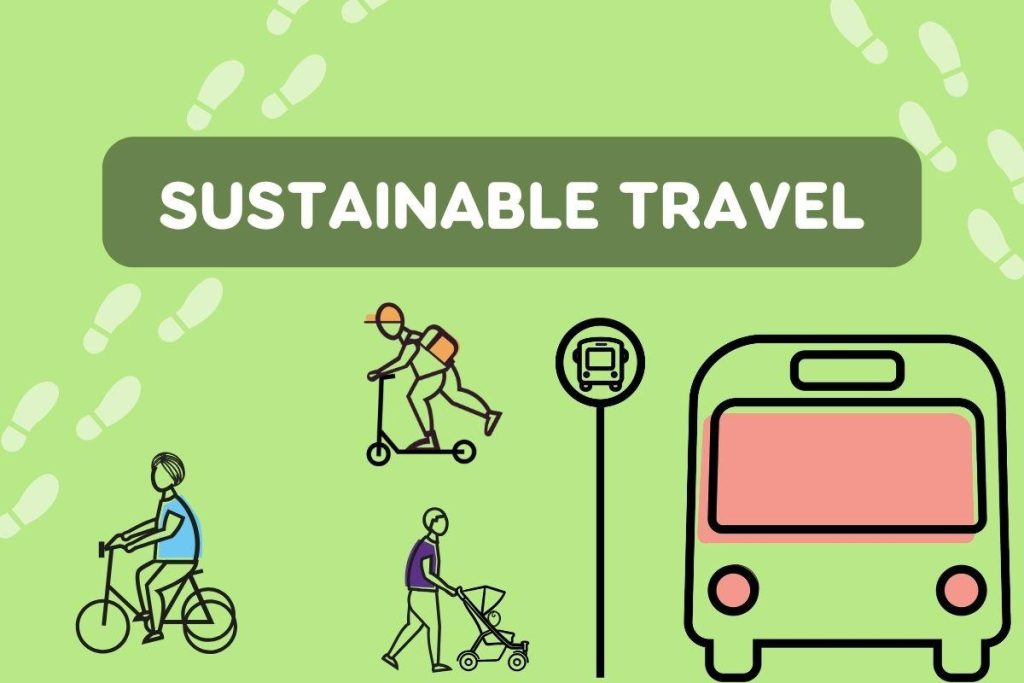As the world becomes increasingly aware of environmental issues, many travelers are seeking ways to reduce their impact while exploring new places. Sustainable travel practices focus on making eco-friendly choices that benefit both the planet and local communities. In this article, we will explore various strategies and tips to help you enjoy meaningful journeys without compromising the health of our environment. From choosing responsible accommodations to supporting local economies, we’ll discuss practical steps that can transform your travel experience into a more sustainable one. Whether you are a seasoned traveler or planning your first trip, these insights can guide you toward a more eco-friendly approach to travel.
Table of Contents
- Understanding Sustainable Travel and Its Importance
- Choosing Eco-Friendly Accommodation Options
- Making Responsible Transportation Choices
- Engaging with Local Communities and Cultures
- In Retrospect
Understanding Sustainable Travel and Its Importance

Sustainable travel is not just a trend; it represents a fundamental shift in how we perceive our journeys and their impact on the world around us. As travelers, we hold the power to influence the environmental, social, and economic landscapes of the places we visit. By adopting eco-friendly practices, we can mitigate the negative impacts of mass tourism. This means opting for accommodations that implement sustainable practices, supporting local businesses, and being mindful of our carbon footprint. Simple actions, such as choosing public transportation or biking instead of renting a car, can significantly contribute to reducing greenhouse gas emissions.
Understanding the importance of sustainable travel also extends to the preservation of local cultures and communities. Respecting cultural heritage, participating in volunteer tourism, and engaging in responsible wildlife experiences foster mutual respect between travelers and communities. By prioritizing environmental stewardship and direct interactions with local cultures, travelers can ensure that their contributions provide lasting benefits. Embracing this approach not only enriches our travel experiences but also supports the well-being of our planet and its inhabitants.
Choosing Eco-Friendly Accommodation Options

When seeking accommodation that aligns with sustainable values, consider options that prioritize ecological responsibility. Look for places that implement green practices, such as:
- Energy Efficiency: Choose accommodations that use renewable energy sources or employ energy-saving technologies.
- Water Conservation: Select hotels that utilize water-saving fixtures and practices.
- Waste Reduction: Support establishments that promote waste recycling and composting programs.
Many accommodations now provide their guests with sustainability certifications, making it easier to make an informed choice. These certifications can include LEED (Leadership in Energy and Environmental Design), Green Key Ecolabel, or EarthCheck. To help visualize your options, here’s a comparison table of eco-friendly amenities to look for in your booking process:
| Accommodation Type | Common Eco-Friendly Amenities |
|---|---|
| Hotels | Solar panels, organic toiletries, linen reuse program |
| Hostels | Recycling facilities, community gardens, public transportation access |
| Vacation Rentals | Local sourcing of furnishings, eco-friendly cleaning products |
Making Responsible Transportation Choices
When planning your travels, making conscious choices can significantly reduce your carbon footprint and contribute to a healthier planet. Prioritizing transportation methods that are not only efficient but also eco-friendly is essential. Consider the following options:
- Public Transit: Buses, trains, and subways help decrease the number of vehicles on the road, thereby cutting emissions.
- Bicycling: Ideal for short distances, cycling is a zero-emission mode of transport that promotes physical health.
- Car-sharing Services: Instead of owning a vehicle, utilize car-sharing platforms to minimize your carbon impact.
- Walking: The simplest and greenest choice for short journeys, walking has the added benefit of supporting your health.
Another crucial aspect to consider is choosing eco-friendly travel companies that emphasize sustainability in their operations. Researching transportation providers that utilize alternative fuel sources or adhere to strict environmental standards can make a difference. Here’s a quick comparison of various transportation types:
| Transportation Type | Carbon Emissions (per passenger) | Impact on Local Environment |
|---|---|---|
| Train | 0.06 kg/km | Minimal |
| Bus | 0.08 kg/km | Low |
| Car (solo) | 0.21 kg/km | High |
| Bicycle | 0 kg/km | None |
Engaging with Local Communities and Cultures
One of the most enriching aspects of sustainable travel is the opportunity to connect with local communities and immerse oneself in diverse cultures. Engaging respectfully with residents can lead to authentic experiences that benefit both travelers and hosts. When visiting new places, consider supporting local artisans and businesses by:
- Purchasing handmade crafts that reflect the cultural heritage of the area.
- Dining at family-owned restaurants that serve traditional cuisine.
- Participating in community-led tours to gain insights into local history and customs.
Moreover, travelers can contribute positively to the communities they visit by participating in conservation and cultural exchange programs. These initiatives not only promote sustainability but also foster a deeper understanding of the local way of life. To help you engage more effectively, here are some best practices to consider:
| Best Practices | Description |
|---|---|
| Learn Basic Local Language | Enhances communication and shows respect towards local culture. |
| Volunteer Locally | Allows you to contribute to community projects and engage with residents. |
| Support Eco-Friendly Initiatives | Encourages practices that preserve natural resources and cultural heritage. |
In Retrospect
embracing sustainable travel practices not only benefits the environment but also enriches our experiences as travelers. By making mindful choices—such as choosing eco-friendly accommodations, minimizing waste, and supporting local communities—we can contribute to the preservation of the places we visit. As we continue to explore our planet, let us commit to being responsible travelers, ensuring that future generations can enjoy the beauty and diversity of our world. Together, we can make a positive impact, one journey at a time.



